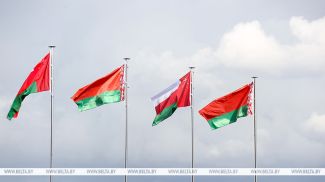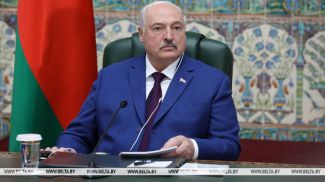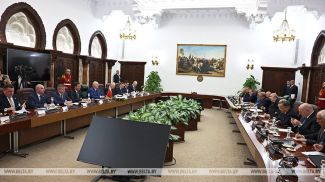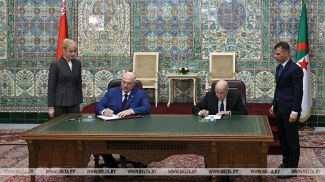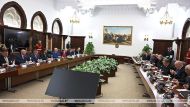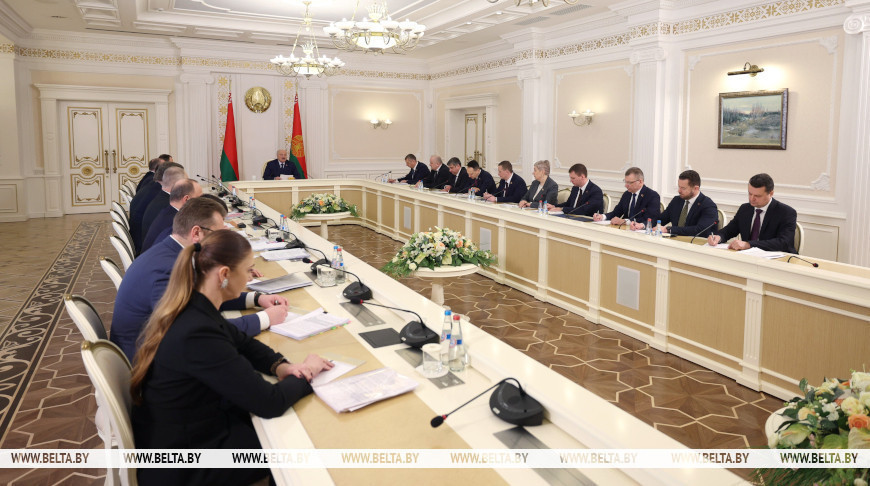
MINSK, 28 February (BelTA) – Belarusian President Aleksandr Lukashenko convened a meeting on 28 February to discuss a new price regulation system, BelTA has learned.
“Alarmists and skeptics shouted from the rooftops that the stores would be empty, go bankrupt and shut down, but this did not happen. And we did not only preserve the product assortment, but we also expanded it over time. And if something goes wrong somewhere, it is our fault. And there is no need to blame economy for this,” the head of state emphasized.
When inflation in the country started climbing, the president demanded coming to grips with prices. Without his tough stance and constant oversight, it would not have been possible to curb the inflation. “In fact, back then a comprehensive document was drafted (as the government calls it) to regulate the consumer market, and it went beyond pricing matters. Had it been a truly comprehensive document, there would not have been a barrage of complaints from manufacturers, sellers and others,” Aleksandr Lukashenko noted.
“I do not mean to say that those complainants who approach me and the authorities are absolutely right. No, I am down to earth. I understand what kind of people these complainants are. I started digging deeper: if you don’t have money to buy something, then find a job (prices in our country are the lowest in the world, they may not be as low as someone wants, but they are the lowest in the world). Get a second, third job. If they don’t hire you, let’s have a look at how you studied at school, what’s in your head. Today, employers will not hire just anyone like it was in Soviet times. They need people who can deliver. Therefore, stand in front of the mirror, look at yourself and ask yourself a question: will you be able to produce results? This is an unpopular position, but it is grounded in reality,” the head of state said.
As it has turned out, the strategy introduced by a directive in 2022 proved to be efficient in addressing its goals. According to statistics, in 2024 inflation was 5.2% although the projections put it at 6%. The year 2025 has also begun smoothly. “At the same time, we raise some prices by directive, like prices for housing and utility services, fuel, etc. We make sure that prices do not rise without permission from the authorities. By the way, they are some of the lowest in the CIS. Yet, we must keep in mind that our country does not have all the things that are needed along the production cycle to manufacture a product. We import more than half of the things that we need in order to produce and sell goods. We depend a lot on this [imports]. We cannot regulate inflation over there. And if they cannot sell us things at a lower price, we have to buy them at the price that they offer.”
Things do not look optimistic for some groups of products. First of all, these are vegetables. Prices for them increase by 15-20% every winter. The government promised to address this issue, but no significant results have been achieved yet.




